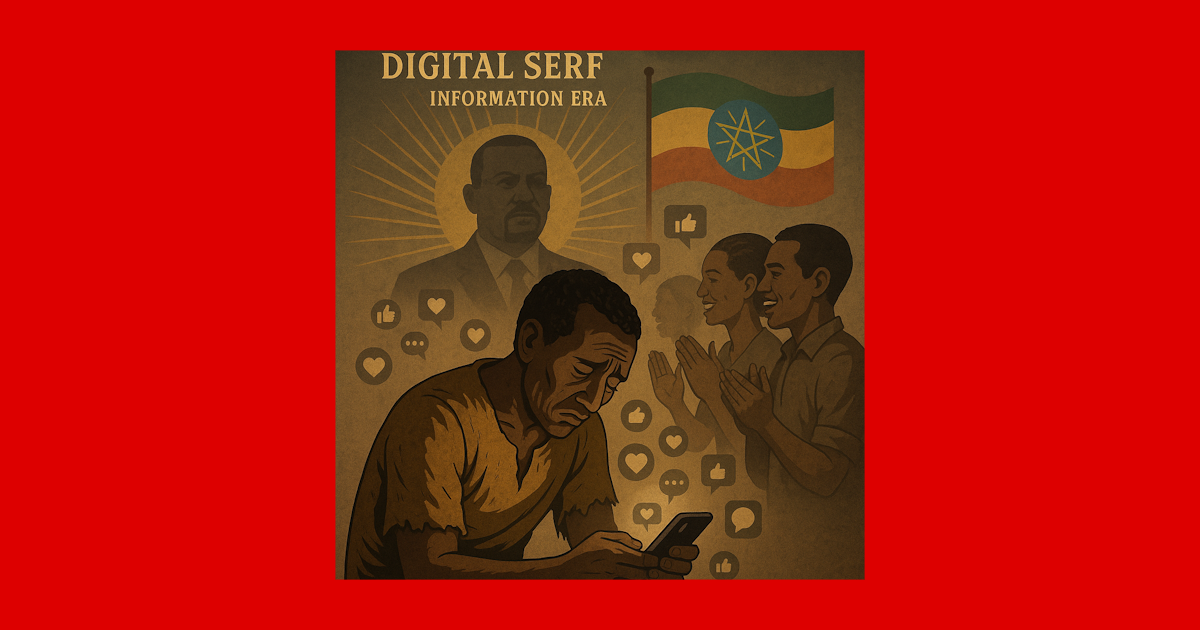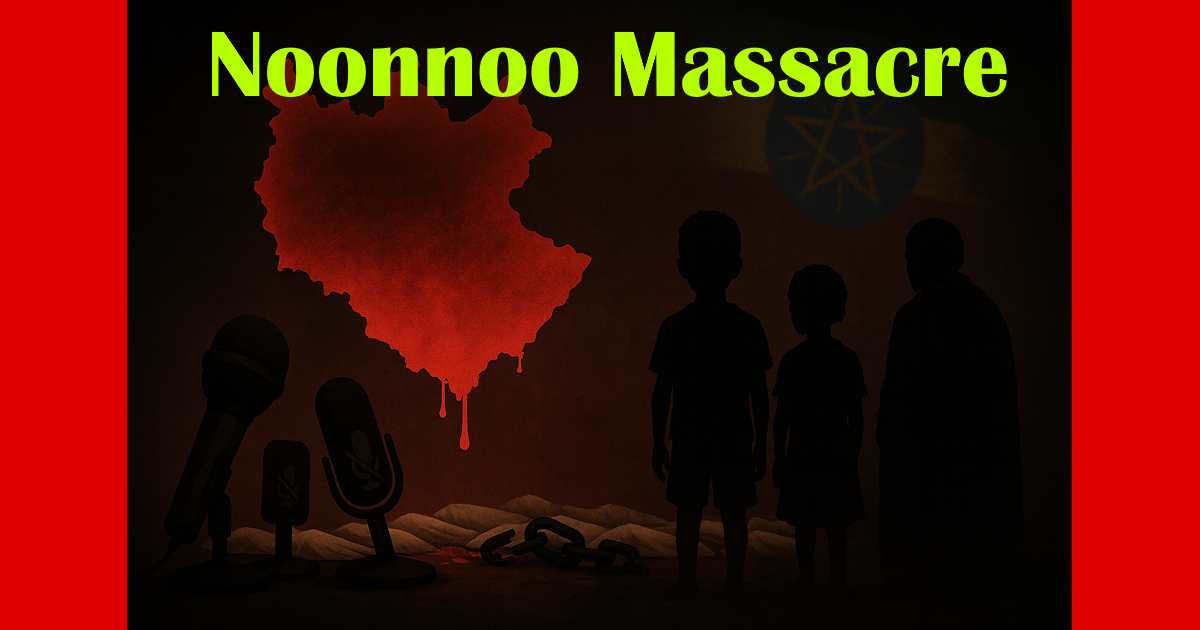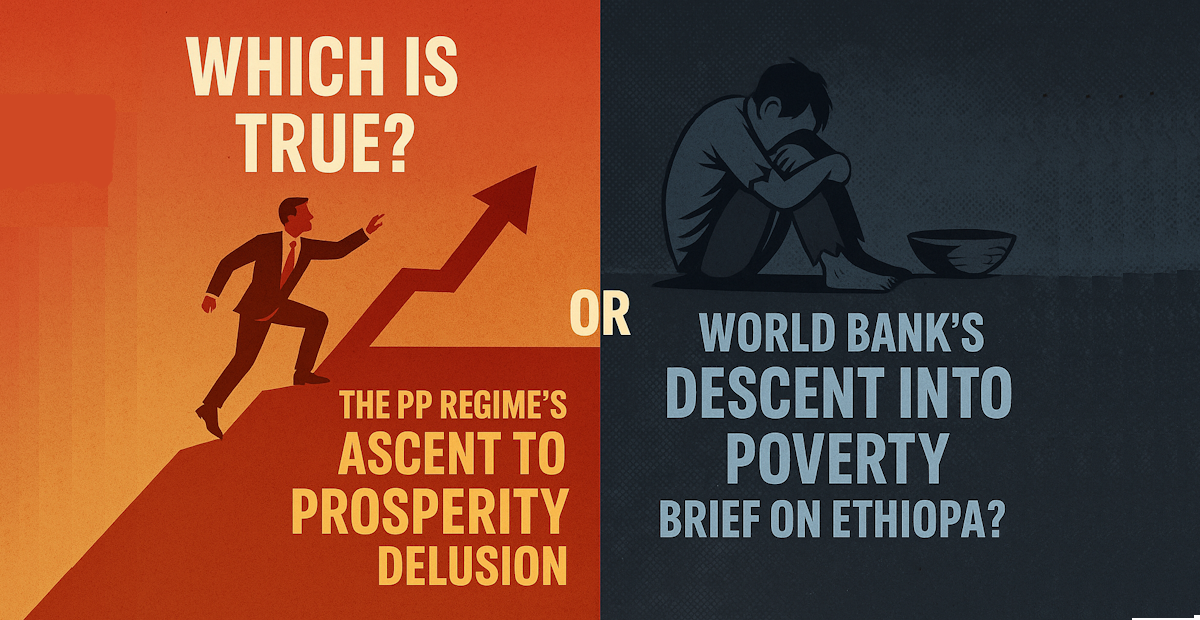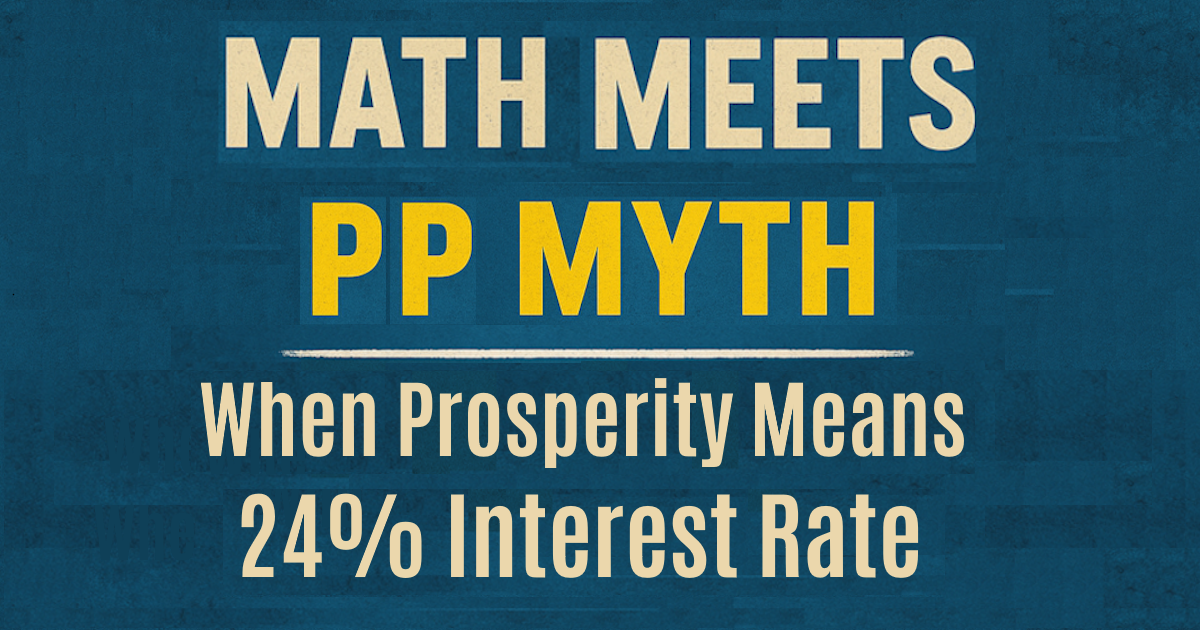Digital Serfdom in Ethiopia: Faarseebulaa, Propaganda, and the Politics of Praise

A Commentary Article by Invitation
Excerpt:
Faarseebulaa refers to Ethiopia’s emerging class of Information Age Digital Serfs—individuals who voluntarily serve authoritarian systems through online propaganda. Unlike historical peasants or proletariats who resisted oppression, the Faarseebulaa defend it for personal gain, fragile self-worth, and limited awareness. They are not rulers, yet they passionately safeguard the system that exploits the majority.
Introduction
Across historical epochs, human societies have stratified themselves into layers of dominance and subjugation. In the feudal era, landowning elites reigned over tenant peasants. The Industrial Age brought forth the divide between capital-owning bourgeoisie and wage-dependent proletariat. Each system bore the marks of exploitation, class consciousness, and eventual resistance.
But the Information Age? In Ethiopia, we are witnessing the emergence of a new, unsettling phenomenon: the Digital Serf — or in Afan Oromo, the Faarseebulaa.
Unlike their historical counterparts, these modern serfs are not coerced. For most part, they are voluntary subservients. They do not rise against oppression — they validate it. They do not critique power — they amplify its propaganda. They are not revolutionaries — they are cheerleaders of the very system that silences their people. Their loyalty is not to justice, but to proximity — proximity to power, influence, or gain.
Whereas peasants and proletariats were at least aware of their subjugation, the Digital Serf is often blind to theirs — and what’s worse, defends it with fervor. Their allegiance to authoritarianism is not rooted in fear, but in internalized self-interest and a warped sense of belonging. This is what makes the Faarseebulaa uniquely dangerous.
Why Would Anyone Choose to Preserve Oppression?
There are revealing clues behind this paradox:
- They do not see beyond themselves — beyond their belly. Their instincts are guided by immediate, personal comfort rather than collective well-being.
- They exhibit little to no Emotional Intelligence (EI). They lack empathy for the suffering of others or imagination for a more just society.
- Their education is often shallow, if present at all. Their literacy is barely functional beyond smartphone basics and social media — and even that, poorly executed.
- Cognitive capacity is also a factor. Many demonstrate low critical reasoning, echoing whatever narrative is trending in their circles.
- Above all, they suffer from chronic low self-esteem. This vacuum of self-worth finds false validation in likes, reposts, and perceived nearness to power.
These are Ethiopia’s Faarseebulaa — the Digital Serfs who, through likes, shares, and vitriolic commentary, uphold an oppressive order that continues to silence, marginalize, and disempower the majority.
The Global Template of Cyber Propaganda
The rise of state-sponsored digital propagandists has become a defining trait of contemporary authoritarian regimes — from Russia’s Internet Research Agency (IRA) [1] to China’s 50 Cent Army [2], and the Philippines’ troll-for-hire influencers under Duterte [3]. These entities don’t just distort facts; they reshape the very fabric of public discourse, attacking dissenters while amplifying state narratives.
Ethiopia, particularly under the Prosperity Party, is increasingly exhibiting similar patterns — though with more informality and improvisation. What makes Ethiopia’s case distinctive is the organic rise of a sub-class: the Faarseebulaa — mostly unpaid but ideologically aligned digital foot soldiers. They are not salaried like conventional cyber trolls, but self-motivated agents of repression.
Much like Duterte’s cyber armies in the Philippines, Ethiopia’s Faarseebulaa swarm comment sections, engineer outrage, and vilify diaspora voices, independent journalists, and Oromo rights advocates.
Globally, the script is familiar:
- In Russia, fake personas simulate grassroots support for Kremlin policy.
- In China, millions of posts are fabricated to create a façade of social harmony.
- In Ethiopia, informal agents sustain state dominance under the illusion of popular praise [4].
The Domestic Surveillance Machinery
Ethiopia’s surveillance apparatus is anchored in the Information Network Security Agency (INSA), established in 1999 with U.S. assistance for counterterrorism purposes. Today, it operates directly under the Prime Minister’s authority and is deeply implicated in the surveillance of dissidents — particularly within the diaspora — using sophisticated intrusion software and digital tracking.
INSA’s tools have reportedly been used to level charges of treason and terrorism against journalists, opposition figures, and civil society actors. But INSA operates within a blurred ecosystem — where formal intelligence, state-aligned paid trolls, and the emerging Faarseebulaa are difficult to disentangle.
Praise to Confuse, Loyalty to Survive
The Faarseebulaa generate an illusion: that the people celebrate the system — when in reality, the majority are disillusioned or silenced. They are not part of the ruling elite, but aspire to be near it. Their motivations are driven less by ideology and more by a craving for social validation and proximity to power. Their rewards are informal and often in kind — praise from powerful figures that unlocks early business tips, fast-tracked permit approvals, and smooth monetization paths. These perks often extend to access to free or undervalued properties, personal security, and business protection.
Thus, a new societal stratum is born: not fully elite, not fully poor — but invested enough in the status quo to defend it. Often more zealous than the elite themselves, this class protects a system that will never truly reward them — but may destroy them if they falter.
In Ethiopia’s social architecture, the Faarseebulaa embody a tragic irony: a class that thrives by normalizing the very system that ensures their perpetual insignificance.
Faarseebulaa: Ethiopia’s Local Face of Global Cyber Control
Ethiopia is quietly developing its own variant of cyber authoritarianism — one where voluntary agents sustain repression through emotionally charged posts, ethno-loyalist fervor, and opportunistic alliances.
The Faarseebulaa phenomenon is not mere online noise. It is the normalized propaganda of the digital age, shaped by global trends and tailored to local insecurities. It must be understood for what it is: a critical pillar in the architecture of 21st-century authoritarian control.
Select References
- U.S. Senate Intelligence Committee Report on Russian Interference, “Trolls as a Threat to Democratic Discourse”, Oxford Internet Institute, 2018.
- King, Pan, and Roberts (2017) – “How the Chinese Government Fabricates Social Media Posts”, American Political Science Review.
- Ong & Cabañes (2018) – “Architects of Networked Disinformation”.
- Editorial, When Public Funds Become Private Fortunes: Why Misusing Public Money Must Be a High Crime, 19 May 2025. OROMIA TODAY.






